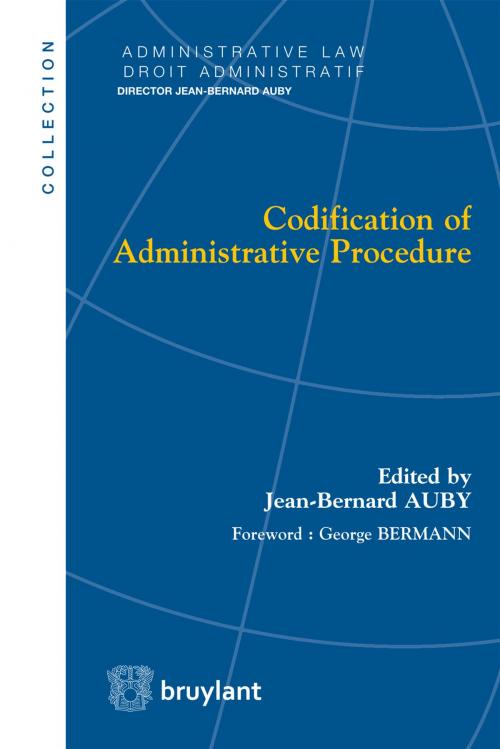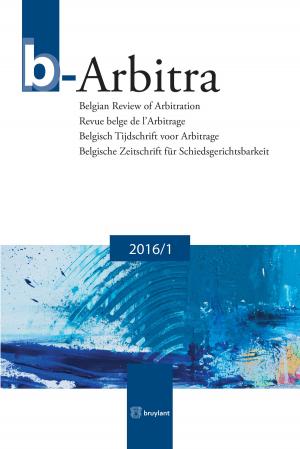Codification of Administrative Procedure
Nonfiction, Reference & Language, Law, Public, General Practice, Administrative Law & Regulatory Practice| Author: | ISBN: | 9782802743798 | |
| Publisher: | Bruylant | Publication: | November 27, 2013 |
| Imprint: | Bruylant | Language: | English |
| Author: | |
| ISBN: | 9782802743798 |
| Publisher: | Bruylant |
| Publication: | November 27, 2013 |
| Imprint: | Bruylant |
| Language: | English |
The law on administrative procedure regulates the processes through which administrative decisions and administrative projects are elaborated. It is more and more regarded as essential in administrative laws: it is really considered as the central part of it in some systems. In many jurisdictions, rules concerning administrative procedure are codified, gathered in a single piece of general legislation: in a few, it remains non codified.
The book is made of the different contributions presented on the topic to the last congress of the International Academy of International Law (Taipei, 2012): national reports on twenty countries and a general report.
These contributions examine the way administrative procedure became codified, the obstacles which had to be overcome, the main orientations of the codes, their evolution in time; alternatively, they explain why administrative procedure is not codified.
Providing extensive materials on an issue which is a concern in many administrative laws and many administrative systems, the book is intended for all searchers and experts in administrative law and public management, whether academics or practitioners.
The law on administrative procedure regulates the processes through which administrative decisions and administrative projects are elaborated. It is more and more regarded as essential in administrative laws: it is really considered as the central part of it in some systems. In many jurisdictions, rules concerning administrative procedure are codified, gathered in a single piece of general legislation: in a few, it remains non codified.
The book is made of the different contributions presented on the topic to the last congress of the International Academy of International Law (Taipei, 2012): national reports on twenty countries and a general report.
These contributions examine the way administrative procedure became codified, the obstacles which had to be overcome, the main orientations of the codes, their evolution in time; alternatively, they explain why administrative procedure is not codified.
Providing extensive materials on an issue which is a concern in many administrative laws and many administrative systems, the book is intended for all searchers and experts in administrative law and public management, whether academics or practitioners.















